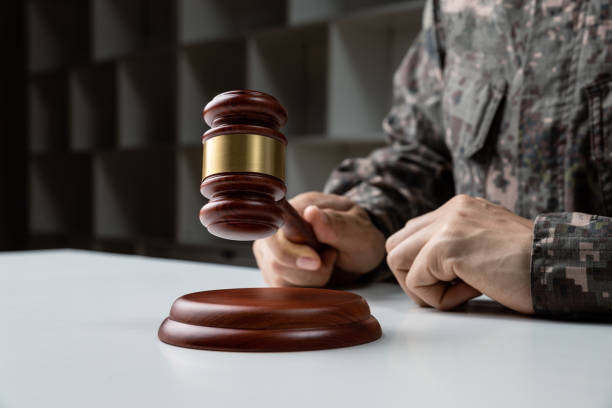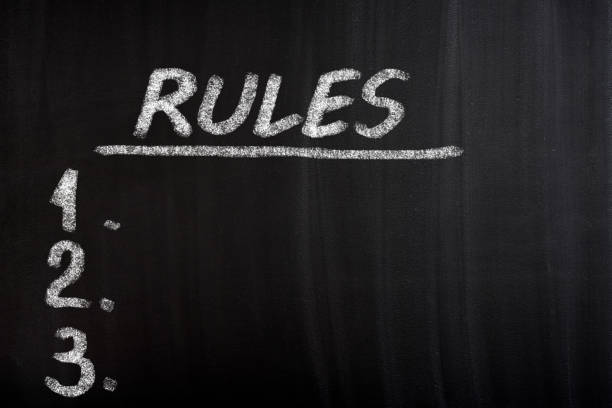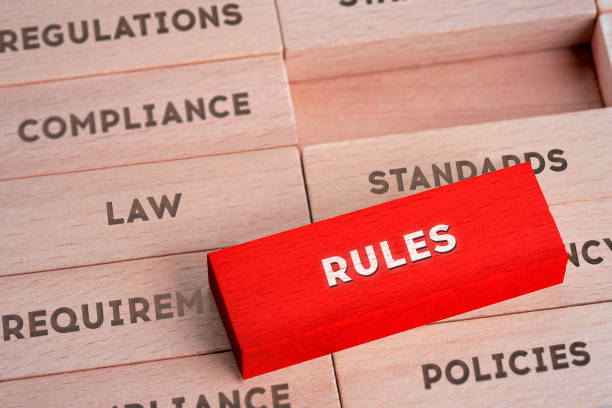
Individuals seeking solid debate points on why Military rule is better than civilian rule should carefully read this article as we offer more light and solid points that will help counter your opponents.
We all know that Military rule and civilian rule are different types of political regimes, with various experiences for the people being led. When military rule is used to describe autocratic governance, it can refer to either a strong military commander who is unchecked by other officers or a group of senior officers who have the power to restrain the dictator.

Read Also: 10 Best Debate Topics for Secondary Schools in Nigeria
Military Rule Is Better Than Civilian Rule
Most individuals always speak poorly or badly about military rule, as they get scared of how tough and strict the military men are. Disheartening stories have been told of how the military rule handled most Western/African countries in the past, and this led to distorted interest in liking the military rule.
Well, I don’t solemnly believe that Military rule is all bad, as there are numerous benefits and experiences, which will be broken down in this blog post for your adequate satisfaction. It is also nice that you have freedom of speech and socialization while under civilian rule, but that doesn’t mean that being under military rule is bad for individuals who are being led.
Read Also: Debate: Teacher is Better Than Farmer (10 Discussion Points)
What Is Military Rule?
Military rule, also known as military dictatorship, occurs when a nation’s government is controlled by the armed forces. Typically, this form of governance arises through a coup d’état, where the military seizes power from a civilian government, often justifying the takeover by citing the need to restore order or address corruption and incompetence.
In such regimes, political power is concentrated in the hands of military leaders, who often suspend constitutional processes, dissolve existing legislative bodies, and impose martial law. Civil liberties and political freedoms are frequently restricted under military rule, with strict control over the media, suppression of political opposition, and limited public participation in governance.
Read Also: Why Good Health is Better Than Wealth (5 Debate Points)
What Is Civilian Rule?
A government in which elected officials, as opposed to military commanders, hold political authority and make choices on behalf of the people is known as civilian rule. Democratic procedures, such as frequent, fair elections where people can freely select their leaders, are what define it.
The government functions under civilian rule in accordance with a constitution that protects political rights. The primary focus of this type of governance is on the division of powers between the legislative, executive, and judicial in order to maintain accountability and transparency, prevent abuses of power, and establish checks and balances.
Read Also: Why Are Teachers Better Than Doctors? (10 Debate Points)
Reasons Why Military Rule Is Better Than Civilian Rule

Military rule is superior to civilian rule due to its strict nature, which enforces adherence to the law, provides excellent discipline, and ensures that every military man and citizen of the nation has a high standard of living.
Individuals advocating for military rule or against it can go through the following reasons which explains why military rule is better than civilian rule.
1. Military Rule Offers Stability and Order
Military regimes often argue that they bring stability and order, especially in times of political turmoil or chaos. With their hierarchical structure and strict discipline, militaries can quickly restore order and enforce laws, reducing violence and civil unrest.
This can be particularly appealing in countries experiencing severe internal conflicts, corruption, or ineffective civilian governance. In the military regime, things turn out differently because a soldier doesn’t take indiscipline lightly.
Due to the nature of their background while in the barracks, a military man is highly strict in carrying out duties and would, in turn, make sure there’s stability and order in the country.

Read Also: 5 Reasons Why Farmers Are Better Than Traders (Debate Points)
2. Military Rule Are Known For Their Swift Decision-Making
Military rulers can make and implement decisions more quickly than civilian governments, which may be bogged down by bureaucratic processes and political debates.
This efficiency can be crucial during crises, such as natural disasters, economic collapses, or security threats, where prompt and decisive action is needed.
3. There’s Reduced Corruption In The Military Rule
In some cases, military regimes claim to be less corrupt than their civilian counterparts. They often come to power by promising to eliminate corrupt practices that plague civilian administrations.
With strict military discipline and a focus on national duty, these regimes may effectively reduce corruption, at least in the short term.
Read Also: Why Mothers Are Better Than Fathers (10 Solid Debate Points)
4. The Military Rule Carry Out Economic Reforms and Development
Military governments can implement economic reforms and development projects without the need for prolonged political negotiations and compromises.
They can focus on long-term strategic goals, such as infrastructure development and industrialization, which might be difficult to achieve in politically divided civilian governments.
5. Under Military Rule, National Security Is Assured
Military rulers often prioritize national security and defence, investing heavily in the armed forces and related infrastructure.
In regions with ongoing security threats or where national sovereignty is at risk, a strong military presence can provide a sense of security and protection that civilian governments might struggle to offer due to political constraints and limited resources.
Read Also: Why Farmers Are Better Than Teachers (10 Solid Debate Points)
The Advantages Of Military Rule

A country under strict and devoted military rule is supposed to enjoy the advantages stated below.
1. Strengthened National Security: Increased focus on national defence and security, with enhanced funding and better training for security forces.
2. Infrastructure Development: Military regimes often prioritize large-scale infrastructure projects to boost economic growth and national development.
3. Law and Order: Strict enforcement of laws and regulations can lead to a lower crime rate and improved public safety.
4. Efficiency in Crisis Management: The military’s ability to mobilize resources and personnel quickly is advantageous in managing natural disasters and other emergencies.
5. Reduced Political Instability: Military rule can eliminate the constant political bickering and instability that sometimes plague civilian governments.
6. Focus on Meritocracy: Military regimes may emphasize merit-based appointments and promotions, potentially leading to more competent governance.
7. Centralized Control: Centralized authority can streamline decision-making processes and ensure uniform implementation of policies across the country.
Read Also: 10 Reasons Why Education is Better Than Money (Your Debate Points)
The Disadvantages of Military Rule
Well, it is said that everything that has advantages also has disadvantages that shouldn’t be overlooked, and below are a few military rules you should take note of.
1. Suppression of Political Freedoms: Military regimes often curtail basic political rights, including freedom of speech, assembly, and the press. Political opposition and dissent are typically not tolerated, leading to a lack of democratic participation and pluralism.
2. Human Rights Abuses: Military rulers frequently use force to maintain control, leading to widespread human rights violations. This can include arbitrary arrests, torture, extrajudicial killings, and the suppression of civil society.
3. Lack of Accountability: Military regimes are typically not accountable to the public. Without checks and balances, military leaders can abuse power without fear of repercussions, leading to corruption and governance issues.
4. Economic Mismanagement: Although military regimes can implement economic reforms, they may lack the necessary expertise in economic management. Centralized decision-making without input from diverse stakeholders can lead to inefficient and poorly planned economic policies.
5. Erosion of Democratic Institutions: Prolonged military rule can weaken or dismantle democratic institutions and norms, making it difficult to transition back to civilian rule. This erosion can have long-term negative impacts on governance and political stability.
6. Isolation from the International Community: Military regimes often face sanctions and diplomatic isolation from the international community. This can result in economic hardship, reduced foreign investment, and limited access to international aid and support.
7. Limited Political Development: Military rule stifles the growth of a robust political culture and hinders the development of political parties and civil society organizations.
Read Also: 10 Points Why Doctor is Better Than Teacher (Debate Discussion)
Criticisms And Counter Arguments Under Military Rule
While there are arguments in favour of military rule, it is essential to acknowledge the significant criticisms and counterarguments:
Lack of Democratic Legitimacy: Military regimes often come to power through coups or undemocratic means, lacking the legitimacy of elected governments. This can lead to widespread repression and violations of human rights.
Authoritarianism and Repression: Military rule is frequently associated with authoritarian practices, including censorship, political repression, and suppression of dissent. This can stifle freedom of expression and undermine civil liberties.
Limited Accountability: Without the checks and balances of a democratic system, military rulers may act with impunity, leading to potential abuses of power and corruption.
Economic Mismanagement: Not all military regimes are successful in promoting economic development. In some cases, military rule can lead to economic mismanagement and stagnation due to a lack of expertise and inclusiveness in economic planning.
Read Also: 10 Reasons Why Female Education is Better Than Male Education (Debate Points)
Frequently Asked Questions (FAQs) on Military Rule
1. Why Military Rule Is Better Than Civilian Rule?
The military has protocol and structure. Protection of life and property is ensured during a military regime. Decision-making is quicker in military regimes than in civilian.
2. What Is A Military Or Dictator Rule?
A military dictatorship is a form of government in which the military exerts total control of a country, usually after seizing power by overthrowing the previous rulers in a coup.
3. How Does Military Rule Impact Human Rights?
Military regimes often curtail civil liberties and political freedoms to maintain control. This can result in human rights abuses, including censorship, unlawful detentions, torture, and suppression of dissent.
4. How Does Military Rule Come To Power?
Military rule usually comes to power through a coup d’état, where the military forcibly removes the existing government. Coups can occur during periods of political instability, economic crises, or when the military perceives the civilian government as ineffective or corrupt.
5. What Are The Main Characteristics Of Military Rule?
Centralized Authority: Decision-making is concentrated in the hands of a few high-ranking military officials.
Suppression of Political Opposition: Political parties, dissent, and free speech are often restricted.
Order and Stability: Emphasis on maintaining law and order, often through strict enforcement and military discipline.
Economic and Social Reforms: Implementation of policies aimed at economic development and social cohesion, sometimes through authoritarian means.
6. Are There Any Successful Examples Of Military Rule?
Yes, some military regimes have been credited with achieving stability and economic progress, such as:
South Korea under Park Chung-hee: Rapid economic development and industrialization.
Egypt under Abdel Fattah el-Sisi: Restored order after the political chaos of the Arab Spring.
7. How Does Military Rule End?
The transition to Civilian Rule, by voluntarily handing over power to a civilian government through elections or negotiations and popular uprisings that involved public protests and resistance movements, forced the military to relinquish power.
Conclusion
Military rule is far better than civilian rule because of its strict nature, which makes individuals abide by the rule of law and also offers great discipline, and every military man and individual of the particular country enjoys a quality livelihood. So, every civilian under military rule should not be scared of accepting military men as their leaders.
Related Articles
- 10 Reasons Why Fathers Are Better Than Mothers (Debate Points)
- 7 Reasons Why Male Education is Better Than Female Education (Debate Points)
- 10 Reasons Why Private Schools Are Better Than Public Schools (Debate Points)
- Is Day School Better Than Boarding School (Debate Points)
- Why Boarding School is Better Than Day School (5 Solid Debate Points)



Be the first to comment